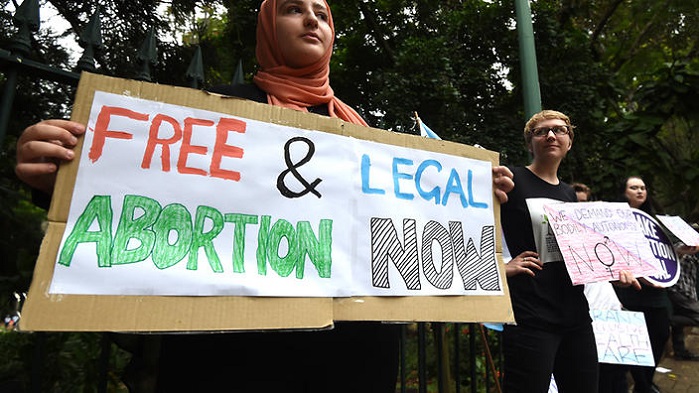Illinois lawmakers passed a radical pro-abortion bill Wednesday that would force taxpayers to pay for abortions through all nine months of pregnancy.
The bill passed the state Senate on Wednesday, after being approved in the House in April, and now moves to Republican Gov. Bruce Rauner’s desk, according to the Chicago Sun Times.
Rauner supports abortion, but he recently said he will veto the bill. He said taxpayer funding for abortion is too “divisive,” a fact backed up by polling. Polls consistently show that a strong majority of Americans oppose taxpayer funding of abortions, including those who identify as pro-choice.
The Illinois bill would force taxpayers to fund abortions for any reason through all nine months of pregnancy, and keep abortion on demand legal in Illinois the event that Roe v. Wade is overturned.
The Illinois State Assembly synopsis of the bill says it would remove language from state law and policy “that the unborn child is a human being from the time of conception and is, therefore, a legal person for purposes of the unborn child’s right to life.”
Here’s more from the Sun Times:
State Sen. Heather Steans, D-Chicago, who carried the bill in the Senate, said it will ensure women have access to abortion services should they need it.
“It is time for us … to ensure it and keep it safe here,” Steans said.
Follow LifeNews.com on Instagram for pro-life pictures.
Several Republicans voiced their opposition to the bill, and abortion itself: “I don’t know about anybody else but abortion in itself is repulsive,” State Sen. Neil Anderson, R-Moline, said on the Senate floor. “Especially in the elective sense.” He called the use of taxpayer funds an “absolute travesty.”
State Sen. Dan McConchie, R-Lake Zurich, said the measure would allow people to treat “abortion as birth control,” and called that “fundamentally abhorrent.”
State Sen. Linda Holmes, D-Plainfield, called GOP-resistance to the bill “unbelievably stunning.”
“You have the choice not to do it but don’t take that choice away from somebody who may find themselves in a situation where it is an appropriate choice and one they need to make,” Holmes said.
Earlier this year, Emily Troscinski, executive director of Illinois Right To Life, estimated that an additional 12,000 unborn babies could die every year in Illinois if the bill becomes law. Those babies’ deaths would be paid for by Illinois taxpayers.
She said Illinois funded unrestricted abortions through Medicaid in the late 1970s, and taxpayers paid $1.8 million for about 12,738 abortions at the time – so “12,000 abortions per year isn’t an exaggeration.”
“We are overjoyed that Governor Rauner has said he will veto this radical legislation,” Troscinski said. “HB 40 would force all Illinoisans to pay for abortions through all nine months of pregnancy and for any reason, for those on Medicaid. This bill is out-of-touch, extreme, and bad policy for Illinois, and we applaud the Governor for his firm position against it.”
Gov. Rauner, a pro-abortion Republican, said he will veto the legislation because most people do not support taxpayer funding of abortions. However, he is under intense pressure from abortion activists to support the bill.
State Senate leaders told abortion activists that they will work to override Rauner’s veto.
In October 2016, a Politico/Harvard University poll found that just 36 percent of likely voters supported taxpayer funding for abortions, while 58 percent opposed it. These findings are consistent with previous polls from various groups.
Interestingly, the poll also found that voters who make more than $75,000 were more supportive of forcing taxpayers to fund abortions (45 percent in favor), while those who make $25,000 or less were strongly against it (24 percent in favor).
In other words, the people most likely to qualify for a Medicaid-covered, taxpayer-funded abortion are the ones who oppose it the most.
ACTION: Contact Gov. Rauner here.








